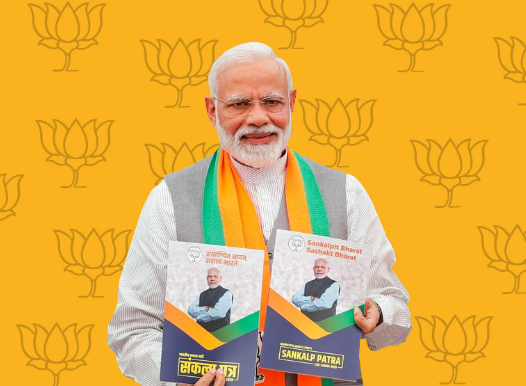ABSTRACT
INTRODUCTION
Religion, caste, money, and power are all important elements in Indian elections, but at the same time, manifesto promises can decide the outcome of an election as well. Political parties have always been able to win elections and defeat incumbents by keeping their election manifesto promises. A manifesto provides a peek into the political as well as economic ideology of a political party. While some political parties advocate for socialist and secular promises, some parties in India have a hard-line approach to policies giving rise to capitalist policies as well. Amidst all types of policies in a manifesto, direct cash transfers, gifts, and sops have always impacted Indian voters since independence. Recently a new term has been coined for these sops, called “Revadis“.
During the 1980s, political parties in India resorted to various ways of impacting the voters. Be it distributing free sacks of rice, mixie grinders, shirts to men, and saris to women etc. All of this was carried out by MLAs or MPs, and the manifesto made no mention of these kinds of measures. Parties do mention development and new policies in their manifestos, but the election campaigning is done on the Revadis only.
This trend was available in south Indian states for quite a while but the Aam Aadmi Party in 2015 elections highlighted it by referencing such commitments in its manifesto and caused individuals to believe that freebies are their right. Delhi residents vote for the AAP because they are so accustomed to receiving freebies that they fail to see the cost of the government’s programs. The Aam Aadmi Party (AAP) has filed an application in the Supreme Court opposing a PIL against political parties promising to distribute ‘freebies’ during election campaigns. AAP in its application said that electoral promises such as free water, free electricity, and free transport are not ‘freebies’ but examples of discharging constitutional responsibilities of the State towards creating a more equitable society. They are spending the public money for their narrow political gains and making people lazy. Rather than promising free electricity or Wifi, the party can promise a clean environment, better rule of law, etc.
Learning the lessons from AAP, the Congress decided to do the same in the Himachal Pradesh elections in 2022 and Karnataka elections in 2023, and surprisingly, the Congress won both states.
How could the BJP remain so far behind, seeing all this? So, too, the BJP announced some subsidies with a mixture of development policies and swept all three states in recent elections namely Madhya Pradesh, Rajasthan, and Chhattisgarh. So the question that needs to be addressed is: what is the impact of freebies on voting patterns, how do voters decide which party to vote for when all parties have announced freebies, what is the long-term impact of freebies etc?
This paper attempts to answer these questions by drawing a relationship between manifesto promises and poll verdicts and also looks into how it can be a dangerous sign to the process of free and fair elections. It takes into account the impacts of manifestos in the politics of other nations like Nepal, the USA, etc. A short but significant part includes the role played by the Election Commission of India and the Supreme Court in curbing the menace of freebies and irrational promises made by the political parties before elections. It ends with the various challenges in curbing these issues and some valuable suggestions for policymakers and political parties to overcome voter fatigue and regenerate the voter’s trust in the electoral system and ultimately deepening democracy.
Keywords- Manifesto, Freebies, free and fair elections, Voter fatigue.
The manifesto is a way to track what the government will be doing after it is elected. It is a document that records the party’s intentions. In fact, in North America and Europe, manifestos are routinely used to document the performance of governments statistically.
Haveri-based researcher Arun Joladakudligi says, in recent years, a welcome change is that such documents have garnered more attention than usual. “In the past, apart from academic circles, such manifestos would not matter to the public,” he says. The decision to vote depends on a complex set of criteria, not always dependent on what the manifestos contain. For Jolada Kudligi, past performance is a better and more reliable metric. Apart from caste considerations and generational voting patterns, the public also focuses on the work they have witnessed over the past five years.
According to the political analyst Sandeep Shastri The utility of manifestos in influencing public favor towards a party has long been under debate. “Empirical evidence is still required to suggest citizens vote based on manifestos,” he says.
Click Here To Download The Paper


📌Analysis of Bills and Acts
📌 Summary of Reports from Government Agencies
📌 Analysis of Election Manifestos

